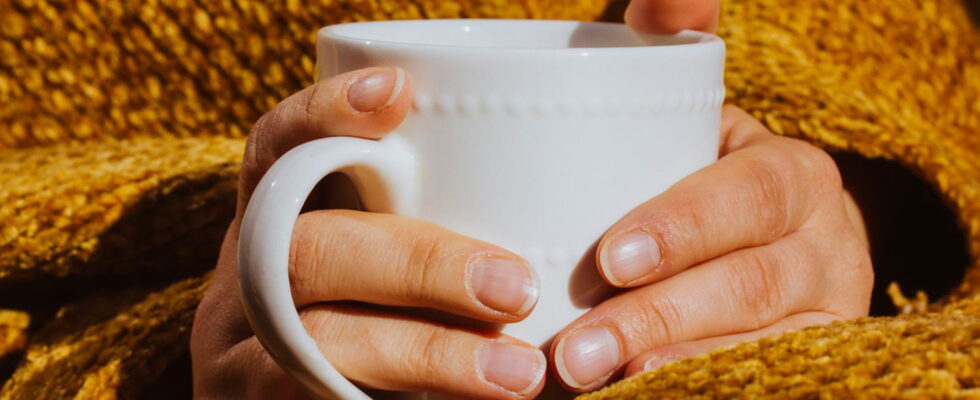Spontaneously, when it’s cold, we tend to reach for comforting drinks to warm up. However, despite appearances, some have the opposite effect on the body.
When winter sets in, the days get shorter, the night casts its black coat, the temperatures drop and, sometimes, the snow does us the honor of visiting us. It can then be very tempting to take refuge in hot drinks, which are so comforting. A steaming cup of coffee, a generous hot chocolate, or even a small glass of alcohol to warm up: these habits seem harmless, even beneficial. Some people decide to snuggle up by the fire with a steaming cup of coffee in their hands. But in reality, some of these drinks might just be your worst enemies when the mercury drops.
Grandma’s advice often recommends consuming herbal teas or a good grog to combat the cold. However, despite their popularity, these traditional remedies are not always suitable for harsh winter conditions. What many people don’t know is that certain drinks don’t help the body better resist the cold. Worse: they can produce the opposite effect by amplifying the feeling of cold or by dehydrating the body.
This is the case with coffee, for example. A large proportion of French people consume it daily, and its comforting warmth is particularly sought after in winter. The problem is that it contains caffeine – logically – a stimulant that increases the heart rate and dilates blood vessels. While it may give you an immediate comforting feeling, coffee paradoxically promotes a loss of body heat, exposing you more to the rigors of winter.
But it’s not so much a question of substance as of temperature. You can absolutely drink a good milk hot chocolate under your duvet. The important thing is not to do it while it is too hot. Indeed, the body must maintain a constant temperature, because the body continually seeks to regulate it. Also, when you consume a drink that is too hot, your body will suddenly feel very hot. He will sweat to eliminate heat before cooling down. In short, the complete opposite of what is sought! Also, it is better to let your boiling tea, hot chocolate or infusions cool slightly before consuming them.
But the only drink you should really avoid is actually alcohol. A great classic for winter evenings, it tends to flow freely during the end-of-year holidays. Perfect for giving yourself a boost! However, the impression of warmth it gives is deceptive. Indeed, by dilating the blood vessels, alcohol causes blood to rush to the surface of the skin, giving a temporary sensation of warmth. But in reality, this process also accelerates heat loss from the body. Worse still, it causes dehydration. So, a small drink during the meal is no big deal, but be careful not to drink too much!
On the other hand, you can indulge in hot chocolate – as long as it’s not hot. In addition to being beneficial for your memory and concentration, its regular consumption can help lower blood pressure, reduce the risk of heart disease and improve blood circulation thanks to the presence of cocoa. Be careful not to overdo it, however, as the drink can be quite high in calories. Otherwise, infusions based on cinnamon, turmeric or ginger, for example, will effectively warm and tone your body.
